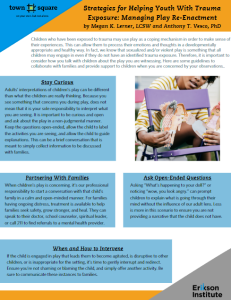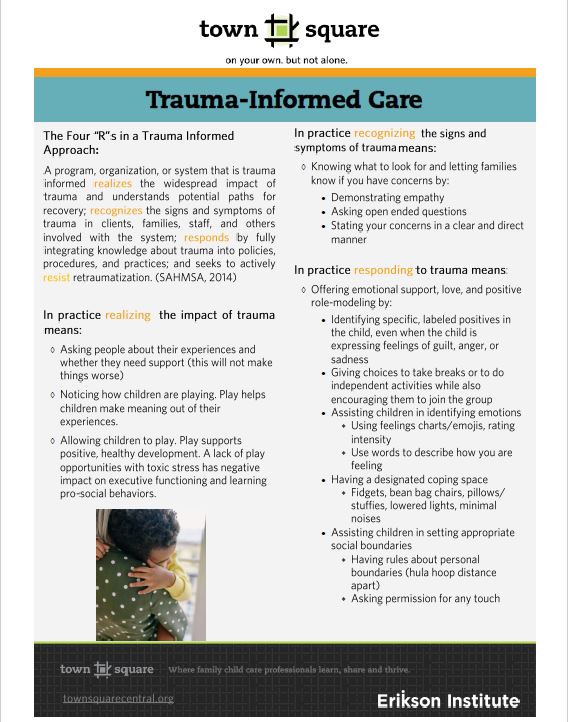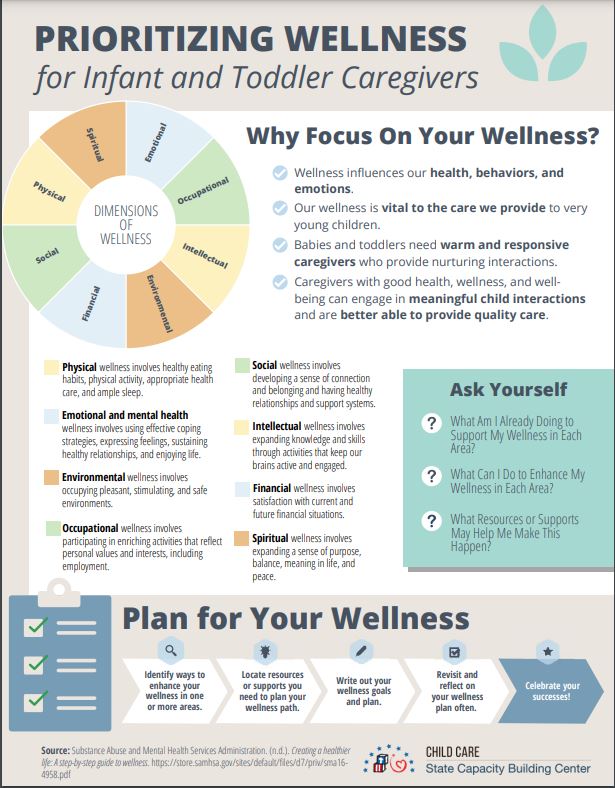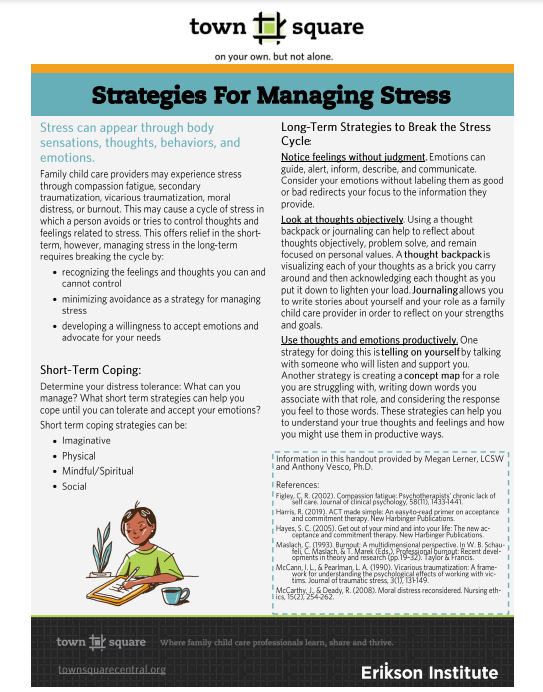SPARK Learning Lab is excited to partner with Calm to support Indiana early childhood education and care and out-of-school professionals by providing access to a free premium subscription to Calm through February 2026. Calm is open to individuals who own, work or volunteer in an Indiana-based early childhood education or out-of-school care program, as well as the household family members and dependents of those individuals.
Fill out this short form to access a FREE Calm Premium subscription through February 2026.
When providers encounter children engaging in play with troubling themes, it’s important to understand how to interact with the children in their play, when and how to interrupt, and how to talk to families about our observations. This one-page downloadable/printable document from mental health professionals Megan Lerner, LCSW and Anthony T. Vesco, PhD, can help prepare you for these difficult situations.
The Office of Head Start National Center on Health, Behavioral Health, and Safety (NCHBHS) supports the social and emotional well-being of children in a variety of ways, including by collaborating with Sesame Workshop to share research-based resources and engaging content designed for the whole family. NCHBHS’s approach to addressing social and emotional well-being includes strategies to support all families — celebrating joyful everyday moments, teaching children the essential skills they need to understand and manage their feelings, and helping parents and community providers recognize the signs of more serious mental health challenges. Join this conversation to learn about Sesame Workshop videos, articles, storybooks, and games that programs can share to keep everyone healthy and happy.
This webinar is offered with simultaneous interpretation in Spanish.
Wednesday, Nov. 29, 20232–3 p.m. ET
Calming spaces in early childhood environments are widespread but creating them with intentionality and teaching children how to use them can be big tasks. When we see disruptive behavior as a sign of a dysregulated child, and provide the tools for that child to re-regulate, we are setting them up for lifelong success as they grow to become people with strong self-regulation and impulse control skills.
These two handouts provide opportunities for you to reflect on how adults use their sensory systems to self-regulate and how to use that information to create calming spaces to support children’s social-emotional development.
The trauma-informed approach is guided by the “Four R’s”: Realize the widespread impact of trauma and understanding potential paths for recovery; recognize the signs and symptoms of trauma in clients, families, staff, and others involved with the system; respond by fully integrating knowledge about trauma into policies, procedures, and practices; and seeks to actively resist retraumatization. (SAHMSA,2014) This Town Square-created resource gives practical ways to utilize the Four R’s.
A huge part of our work is caring for the health and well-being of the children we care for. However, for us to do this effectively, we need to also care for ourselves. This resource created by The Office of Child Care, State capacity Building Center an office of the Administration for children & families, highlights the importance of caring for our wellness, exploring the eight areas of wellness ( physical, emotional, and mental health, environmental, occupational, social, intellectual, financial, and spiritual). The resource also helps in reflecting on how we currently support each area and how we can better plan to support all areas.
As caregivers, we experience stress in many ways, appearing through body sensations, thoughts, behaviors, and emotions. This Town square-created resource can help you think about long-term strategies to break the stress cycle.
No words could describe our sadness, outrage, and devastation over the past few weeks. We are thinking about the children, teachers, and families who were and continue to be tragically affected by senseless acts of violence. As educators, parents, and humans, we too are struggling with our emotions and with what to say to children. Below are a few resources to use as we face these difficult conversations.
- All Our Kin has curated a list of resources for speaking with children about difficult subjects.
Resources for Speaking with Children About Difficult Subjects
- The National Child Traumatic Stress Networks (NTCTSN) develop resources focused on talking about shootings and how to help children with traumatic grief.
Talking to children about the Shooting
Helping Young Children with Traumatic Grief: Tips for Caregivers
Lastly, we want to share a resource from the Early Childhood Learning & Knowledge Center as a reminder of the importance of caring for ourselves, especially in moments of grief.
Caring for Ourselves as We Care for Others
Taking care of young children is a job filled with joy, but also responsibility, and it can be stressful. This booklet from Head Start ECLCK gives information on how to identify your sources of stress and strategies for reducing stress. Learn more about how to identify your stressors and manage them effectively.
Taking Care of Ourselves Booklet – English
Para ver este recurso en español haga clic aquí
The Illinois Childhood Trauma Coalition (ICTC) brings together many organizations to work on educating the community about the effects of childhood trauma and create programs and systems that prevent trauma and support the needs of children and families.






